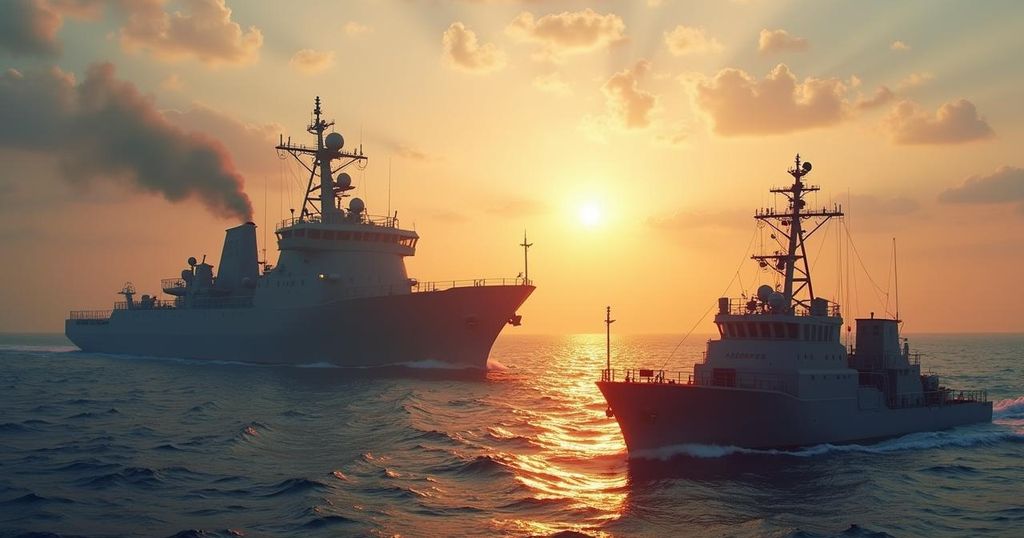Marine Diplomacy: A Solution for the Strained Ecosystems of the South China Sea?
Scientists urge a focus on marine diplomacy between China and the Philippines to address ecological damage in the South China Sea, where territorial disputes have led to the destruction of coral reefs and significant declines in fish populations. Experts press for cooperation in marine research and conservation, highlighting the necessity of joint efforts to protect this vital ecosystem.
Territorial disputes in the South China Sea have significantly impacted marine life, prompting scientists to advocate for cooperation over conflict between China and the Philippines. Spanning over 3.5 million square kilometers, the region has been a focal point of contention for more than 20 years, fueled by historical grievances and economic interests. China asserts sovereignty over almost the entire South China Sea, including the Scarborough Shoal, which is renowned for its abundant marine resources and is located 200 kilometers from the Philippines. This ongoing conflict has resulted in detrimental effects on one of the world’s vital marine ecosystems. Marine biologists from the Philippines warn that the geopolitical struggle has endangered countless marine species and habitats. Professor Deo Onda from the University of the Philippines Marine Science Institute expressed concern during a recent forum, stating, “Amid this geopolitical tension that we have in the region are the corals, the fishes, the invertebrates, and the organisms that are not privy to the politics. As we always say, fishes do not have passports.” Moreover, damage from China’s artificial island construction and extensive clam harvesting is alarming; reports indicate the destruction of more than 4,000 acres of coral reef and severe depletion of fish stocks. Despite a provisional agreement reached in July to reduce tensions, accusations of environmental violations have persisted between the two nations. The Philippines has indicated intentions to sue China for environmental damages following a ruling that largely affirmed the Philippines’ claims to its maritime territories. Conversely, China has rebuffed these claims and pointed to damages inflicted by a Philippine warship as evidence of responsibility on the Philippines’ part. Experts are increasingly vocal about the necessity for collaboration on environmental protection, advocating that the conservation of the marine ecosystem transcends political discord. Professor Onda emphasized, “If we want to solve the problems in the West Philippine Sea, we need to start in our own backyard, but we need to really work with our neighbours. And isolating or excluding China from the conversation is not an option.” Echoing these sentiments, coastal and marine geologist Fernando Siringan noted that the environmental repercussions of political strife have intensified due to China’s economic pursuits, including significant land reclamation efforts, which have devastated coral reefs critical to marine biodiversity. As a traditionally important fishing area, the West Philippine Sea’s ecological degradation has resulted in a drastic reduction in fish populations over the past three decades. Marine science professor Charina Repollo highlighted the impact, observing a 70 percent decline in overall fish numbers and the loss of half of the fish species over the last 30 years. A lack of comprehensive surveys assessing the extent of the damage hinders effective environmental management, as funding shortages and interference from foreign vessels complicate research initiatives. Experts advocate for increased scientific collaboration among Southeast Asian nations as a means to address these long-standing territorial disputes constructively. Ultimately, effective marine governance may hinge on recognizing that marine ecosystems lack national boundaries. Professor Onda concluded, “We need to think… how we can move forward with marine scientific cooperation… as a potential science diplomacy avenue.”
The South China Sea, a crucial maritime region rich in biodiversity and economic resources, has been mired in territorial disputes, primarily between China and the Philippines. The area has significant ecological importance, hosting diverse marine species and critical coral ecosystems that are currently under threat due to geopolitical tensions and environmental exploitation. Scientists from the Philippines have raised concerns about the ecological degradation resulting from political conflicts, emphasizing the necessity for marine cooperation and diplomacy to preserve these essential ecosystems.
In summary, the ongoing territorial disputes in the South China Sea pose significant risks to the marine environment, necessitating a shift from political discord to collaborative conservation efforts. Experts advocate for a united approach to marine science and environmental protection to safeguard the rich biodiversity of the region, recognizing that ecological concerns transcend national boundaries. The urgency for scientific cooperation underscores the potential for diplomacy through shared environmental stewardship and research initiatives.
Original Source: www.eco-business.com








Post Comment